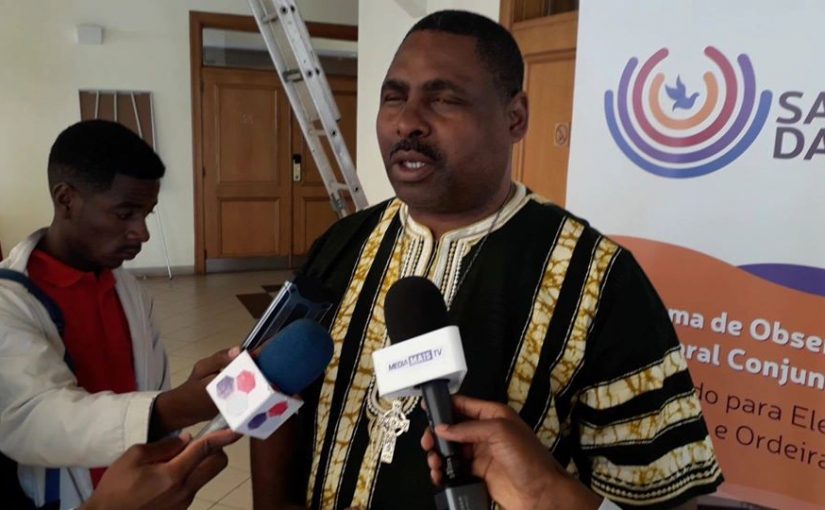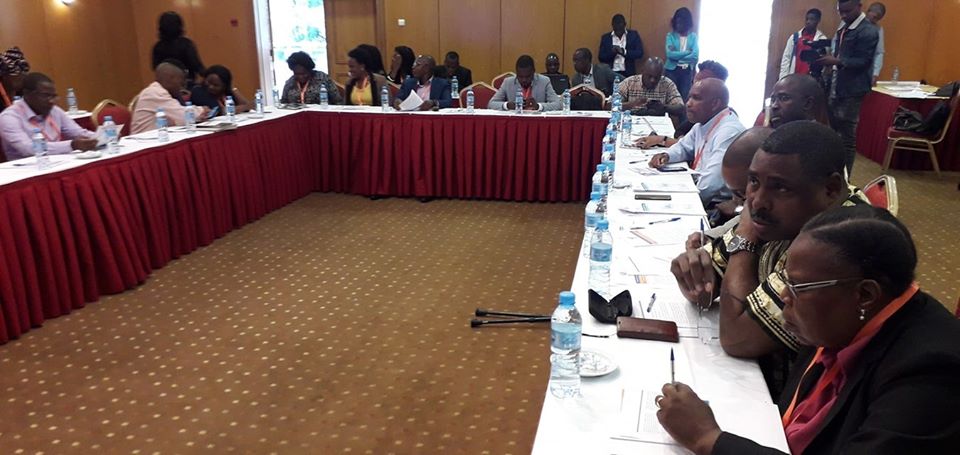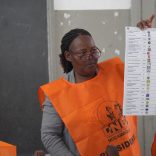Just-released Commonwealth observer report on 2024 elections calls for electoral reforms in ...
Mozambique: Bishop calls for non-partisan election bodies

Photo: Sala da Paz
Methodist bishop Dinis Matsolo on Wednesday called for the removal of political parties from the Mozambican electoral management bodies, the National Elections Commission (CNE), and its executive arm, the Electoral Administration Technical Secretariat (STAE).
“When there are players who are also referees, there will always be problems”, said Matsolo, at the opening in Maputo of a national seminar organised by the coalition of election observation bodies, the “Sala da Paz” (Peace Room), held to assess the general and provincial elections that took place on 15 October.
Speaking on behalf of the Mozambican Christian Council (CCM), Matsolo called for a deep reflection on “alternative forms of election management”.
The CNE and STAE have been deeply politicised bodies ever since the first multi-party elections held in 1994. Currently the CNE consists of five representatives of the ruling Frelimo Party, four from the main opposition party, Renamo, and one appointed by the second opposition party, the Mozambique Democratic Movement (MDM).
There are also seven CNE members from civil society – but these members are chosen from a short list by the country’s parliament, the Assembly of the Republic, which effectively means that they too are chosen by the political parties.
The CNE is supported by Provincial and District Elections Commissions, each consisting of 15 members, three from Frelimo, two from Renamo, one from the MDM and nine from civil society. Civil society candidates for the provincial and district commissions are presented to the CNE – which again means that they are effectively chosen by the political parties.
As for STAE, it has a full-time professional general director assisted by two deputy general directors, one from Frelimo and one from Renamo. During election periods, STAE also has six deputy national directors (three from Frelimo, two from Renamo and one from the MDM) plus 18 other staff members (nine from Frelimo, eight from Renamo and one from the MDM).
This politicisation is repeated at the provincial, district and city branches of STAE. This means that there are literally thousands of political appointees in the electoral apparatus, intensely distrustful of each other, and working for their political parties rather than for the electorate.
Matsolo said that this structure leads to bipolarisation. “There is an impression that elections belong to Frelimo and Renamo when, in reality, they belong to all of us”, he said.
Repeated electoral disputes, he added, call into question the credibility and integrity of Mozambican elections.
“We are worried that the same mistakes are made election after election”, said Matsolo. “Hence the need to assess our experiences since, without this assessment, we run the risk of committing the same mistakes again”.

Hermenegildo Mulhovo, the Executive Director of the Institute for Multiparty Democracy (IMD) warned of the gap between electoral norms and the practice on the ground.
“Electoral violence perpetrated by members and sympathisers of Frelimo and by the police, the resort to fraud by agents of the electoral bodies, and inequalities in competitive terms continue to govern the main problematics of the elections”, he said.













Leave a Reply
Be the First to Comment!
You must be logged in to post a comment.
You must be logged in to post a comment.